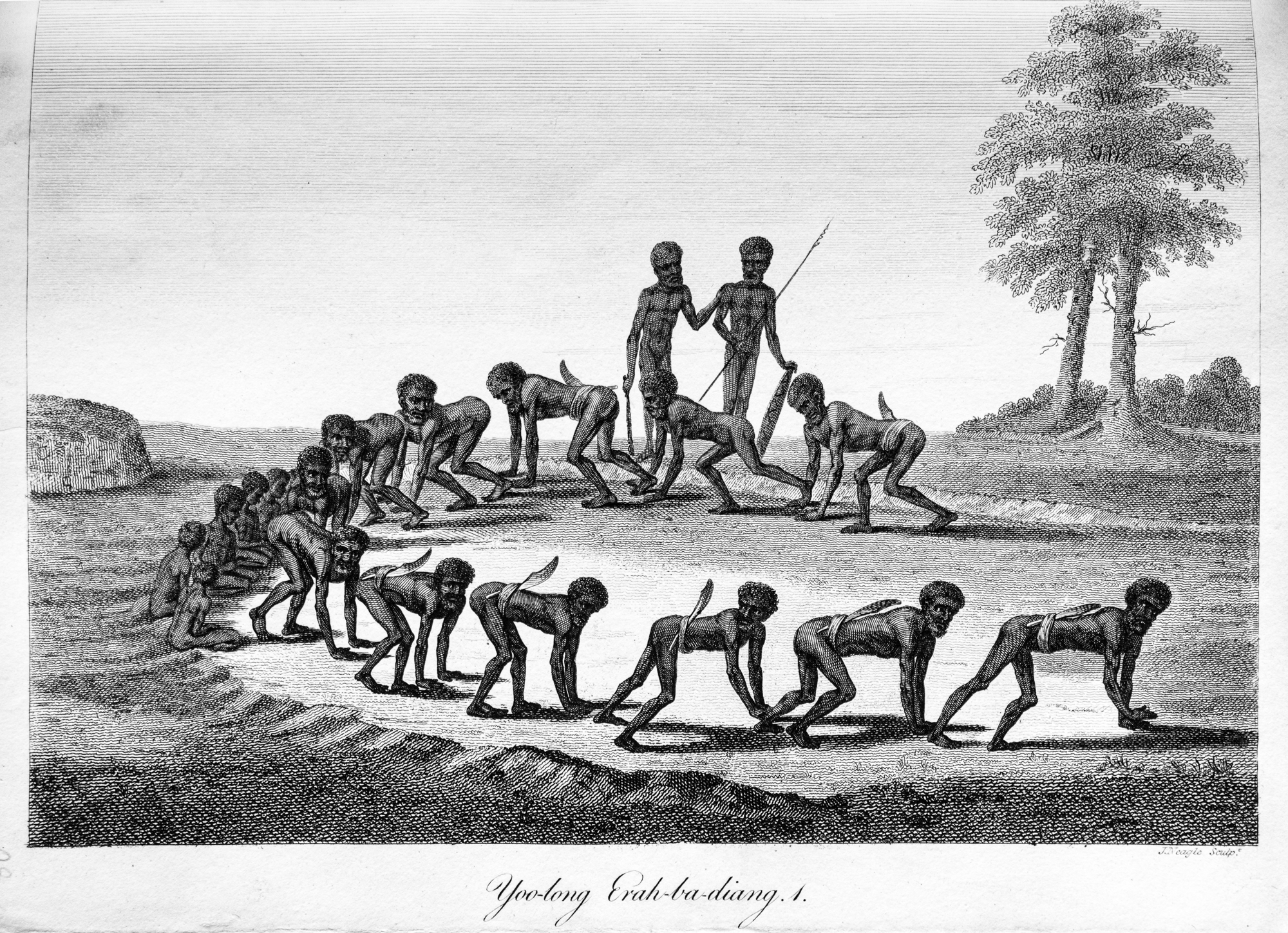David Collins was born on 3 March 1756 most probably in Exeter, England where he attended the grammar school. In 1770 he was gazetted lieutenant* of marines even though he was a boy of only fourteen years of age. " The marines were unpopular, but a useful branch of the service, and in those days promotion - sometimes opportunities - came quickly". (Collier xi) * Some references say ensign.
In 1775 Collins was sent to America and his battalion distinguished itself in the battle of Bunker Hill on 17 June and was promoted to first lieutenant one week later. By 1776 he was posted to Halifax, Nova Scotia where he married Maria Proctor on 13 June 1777. In 1777 he was Acting Adjutant of marines at Chatham, was promoted to captain in July 1780, and joined the Channel Squadron in 1781 taking part in the relief of Gibraltar. However, he had no love for the sea and returned to Chatham in 1783.
In October 1786 Collins volunteered for service in the new colony of New South Wales and in October was appointed Judge Advocate in spite of having no legal training. In May 1787, with a regiment of marines, David Collins sailed with the First Fleet on Sirius to New Holland to establish the colony of New South Wales.
Twelve days after arriving at Sydney Cove it was David Collins who read the royal commission aloud to the assembled settlers appointing Philip Captain General and Governor in Chief. As Judge Advocate Collins was also chief executive and the Governor's assistant and so read the Act of Parliament creating the new colony.
As Judge Advocate Collins was responsible for the entire legal establishment of the new colony. He was Chief Justice, County Court Judge and Resident Magistrate. As such he had to provide many legal services for the settlers but also got involved at the highest level including settling ongoing disputes between Governor Philip and the commander of marines Captain Robert Ross. Arthur Philip and Collins formed a close working relationship and shared a "compassionate interest " in the local aborigines and their welfare.
The Second Fleet brought the New South Wales Corps to replace the marines but Collins declined to join this unit as he expressed a dislike for its officers. As a result Collins lost his position as Judge Advocate and could see no prospect of promotion although justifiably seeing himself as "indispensible " to the colony. He therefore became disillusioned with his position and decided to return to England. However he had a strong loyalty to Governor Philip so did not ask to be sent home until Philip himself left December 1792. Out of a sense of duty Collins stayed on under Governor Hunter but eventually sailed for England on Britannia in August 1796 reaching England in June 1797.
On his return Collins was disappointed to be told by the Admiralty that he could only return to service in the marines as the most junior of captains and with half pay. However, in recognition of his service in New South Wales on 1 January 1798 he was promoted to lieutenant colonel but without pay increase or command.
However Collins was recognized for his first hand knowledge of the new colony its challenges and opportunities. He had kept journals of his time there and in May 1798 he published the first volume of his Account of the English Colony of New South Wales with engravings by Edward Dayes. This was more comprehensive than any previous publication and recorded the important activities and events of the colony in considerable detail. It also includes descriptions of the local aboriginals, their characteristics and way of life under the following headings-
- Remarks on the Manners and Customs of the Natives of New South Wales, Government, Religion,
- Stature and Appearance, Habitations, Mode of Living, Courtship and Marriage, Customs and Manners
- Superstition, Diseases, Property, Dispositions, Funeral Ceremonies, Language.
In addition there are eight plates showing native ceremonies with detailed descriptions-
In 1802 Collins followed with the publication of a second volume based largely on Governor Philips' reports and in 1804 his wife Maria published an abridged edition, which sold for a more affordable price.
In 1802 David Collins was chosen to start a new colony in "Bass Strait" - actually in Port Philip Bay. In January 1803 he was commissioned as Lieutenant Governor and sailed on Calcutta in April arriving in October. He considered the chosen site on the eastern side of the bay (near present Sorrento) unsuitable with poor soil and little water. He therefore requested that Governor King agree to him relocating to the Derwent River on Van Diemen's Land and it was here that he founded Hobart Town. Ongoing problems arose including shortages of supplies meaning they had to rely on kangaroos for food which was not only unsatisfactory but caused conflicts with the local aborigines. This was compounded when the government decided to relocate most of the population of Norfolk Island to Hobart Town.
Collins died suddenly on 24 March 1810. He was buried with full military honours on the site of the future St. David's Cathedral, Hobart which was named in his honour.
The following is from the title page of David Collins' An Account of the English Colony in New South Wales-
Many might be saved, who now suffer an ignominious and an early death; and many might be so much purified in the furnace of punishment and adversity, as to become the ornaments of that society of which they had formerly been the bane. The vices of mankind must frequently require the severity of justice; but a wise State will direct that severity to the greatest moral and political good. Anon.
References
1. An account of the Colony in New South Wales by David Collins, Edited and with an Introduction, and Notes by James Collier, published by Whitcombe and Tombs Limited,1910, rga 919.44042 c712
2. Australian Dictionary of Biography
